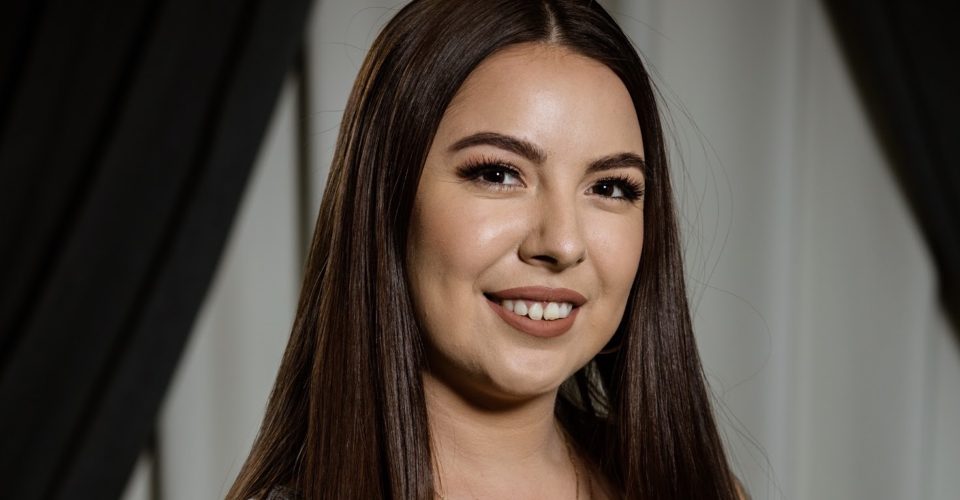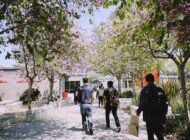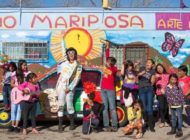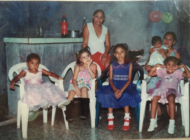“So, when I got here they were like you have an accent, where are you from. And I was so lost because I thought that I was from a different world…”
By LESLIE IGNACIO
EL NUEVO SOL
Bilingualism allows a person to expand their knowledge, in not one, but two languages. Although English-Spanish bilingualism has not always been celebrated, but rather perceived as a complication, when that kind of bilingualism has important advantages
In 2013, Spanish was the most spoken non-English language in the U.S., used by 35.8 million Hispanics in the U.S. plus an additional 2.6 million non-Hispanics, according to the Pew Research Center. Yet often times the Spanish language is not acknowledged as important as other foreign languages.
Learning two languages can be very beneficial to a child when growing up as it exposes them and allows them to communicate beyond the English language.
23-year-old CSUN graduate student, Carina Alvarado Alcalá, grew up learning both languages while being raised with seven other siblings in Filmore, Calif. Her parents first migrated to the United States from Tamaulipas, Mexico during the 90’s.
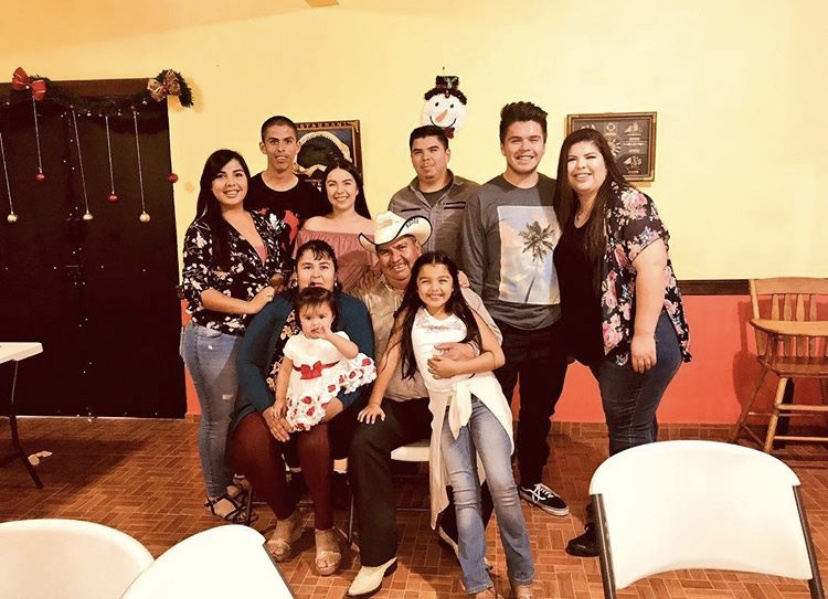
Carina Alvarado with her parents and siblings. Picture by Carina Alvarado | El Nuevo Sol
Being first generation, allowed Alvarado to embrace her Mexican American culture, but brought her difficulties when her parents took her to live in Mexico when she was in elementary school.
“…That’s when I first learned about the other country, their home, what they call their roots. I was in school for about four months there. That’s when I realized that I was bilingual,” said Alvarado. “But that was also very hard for me because when I was back in the United States in Filmore I had like a 4.0, my teachers were always like this student is very smart, like this student should not be in ELD (English Language Development) and I didn’t even know what that meant.” Until I went to Mexico and I was having a hard time, distinguishing the English language and then the Spanish language.”
Then when Carina was brought back to school in California, things got even worse.
“When I came back from Mexico, about six months later and I came back to go to school in Filmore that’s when I really, really felt it because I was confusing my vocabulary, I was confusing my vowels,” said Alvarado. “I wasn’t getting the 4.0 that I was getting before I left to Mexico.”
Yet Alvarado did not let that stop her from embracing both languages as she excelled in her classes all through grade school, allowing her to take advanced placement classes in high school.
She then moved to the San Fernando Valley to attend California State University, Northridge and pursue a degree in communications, but found herself having to overcome yet another obstacle.
“When I came here to CSUN, my first year I lived at the dorms and I mean I present myself as a Mexican American, but because the color of my skin a lot of people think that I’m Caucasian and that I don’t speak Spanish,” said Alvarado. “So, when I got here they were like you have an accent, where are you from. And I was so lost because I thought that I was from a different world…”
Trying to find a balance between the culture she grew up loving and what was acceptable at a university level for Alvarado was hard.
“That is something that I really did struggle with because I didn’t know where my identity stood,” said Alvarado. “I didn’t know if I should be speaking Spanish, was I going to get the same opportunities because as a first-generation college student you’re always constantly battling with imposter syndrome. Always constantly battling with if I belong here.”
After being told she would not receive various positions if she spoke Spanish, Alvarado began utilizing her Spanish as an advantage rather than a disadvantage as a counseling graduate assistant at College of the Canyons.
“For me, when students would come in and they didn’t know how to speak English and their native language was Spanish, to me it was like we had a service for them because I was there and I was able to help communicate with them.”, said Alvarado.
College-age Latinos accounted for 1.8 million, or 15%, of the overall enrollment of 12.2 million young adults in two- or four-year colleges in 2010, according to the Pew Research Center.
Bilingual people like Alvarado are very important as more and more Latinos have begun attending college over the past years, this means some may need or prefer to communicate in Spanish.
Tags: Bilingualism Carina Alvarado CSUN Leslie Ignacio






